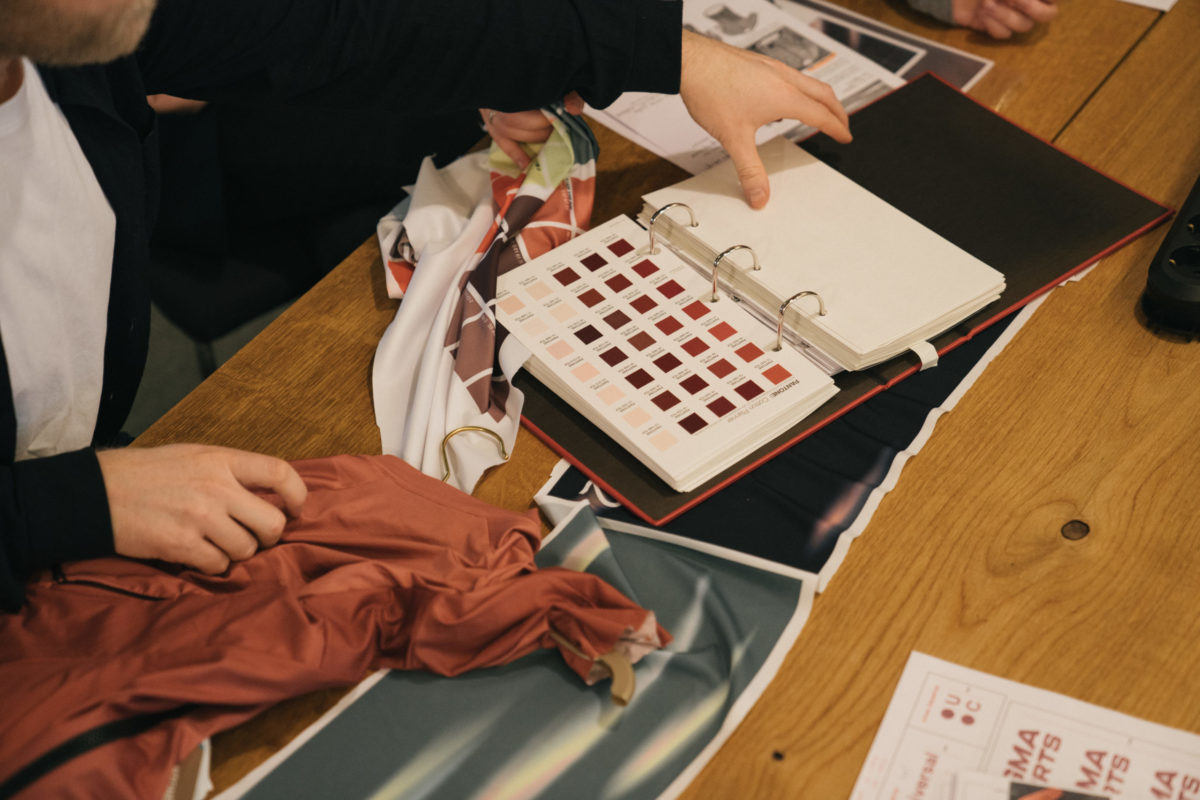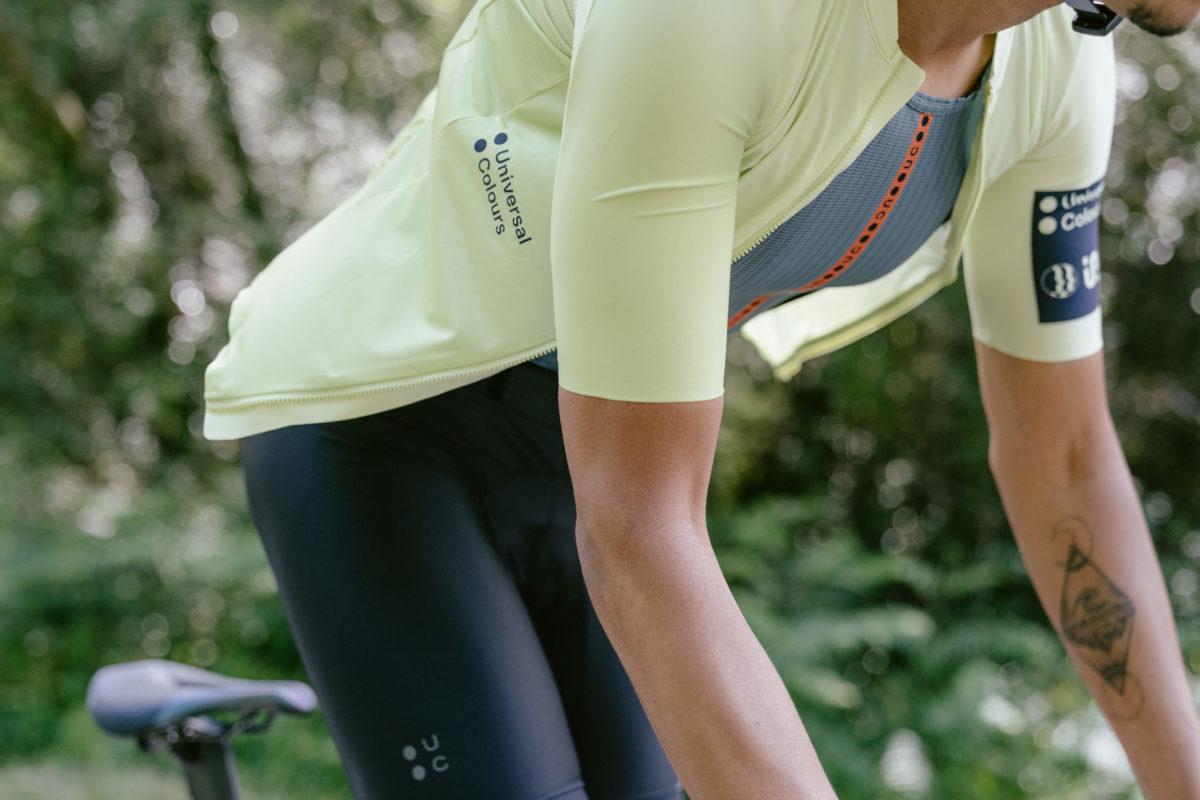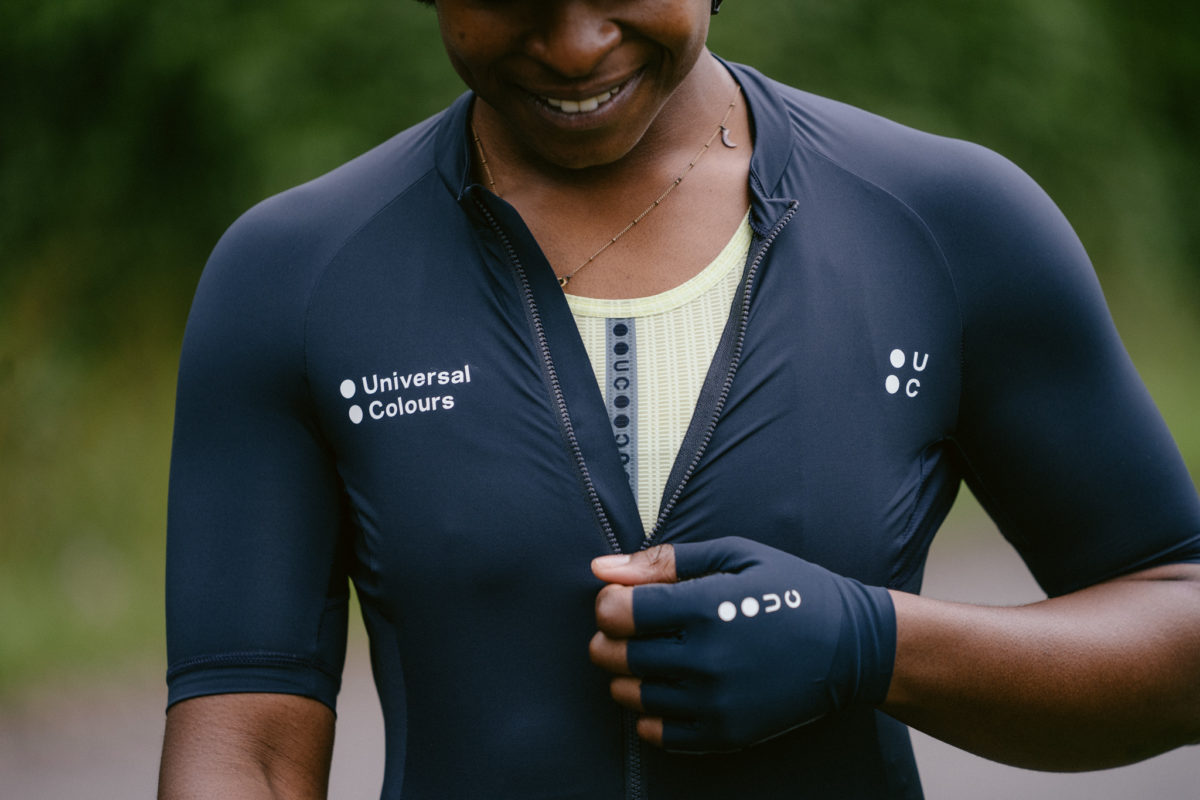The cycling industry has a long way to go in regards to sustainability and seeing new brands emerge producing progressive cycling kit with this at the heart of their core values reminds us that all hope is not lost.
You may not have heard of cycling kit maker Universal Colours. The upstart European brand only just debuted its range at the end of July after a low-key, lockdown-afflicted launch campaign that has nonetheless left it chuffed to see heavy demand for some of its new products.

“We’ve been selling out of products and some of the biggest cycling brands have been in touch because they like what we are doing so that’s been encouraging,” Universal Colours head designer William Hurd told The Draft this week. “Maybe they can learn from a small player like us. Why not?”
Hurd, formerly chief designer at British bike manufacturer and retailer Evans Cycles as it launched two bespoke cycling apparel lines including the premium KALF range, is a meticulous driving force behind the brand – from design to fabric selection to logo conception. “The logo and word mark has to look good on the garments not just on a header or webpage. It took many iterations.”
“One thing we’ve learnt from the likes of Rapha is that success is not just about great product; the brand and its story must be right as well. Rapha created that iconic black and white imagery and connected with the cycling community and had the designer Paul Smith involved at the beginning which created a very distinctive style. It was as much about the brand as it was about the product.”
Others in the melting pot of inspiration include New York-based niche streetwear brand Noah and ethical outdoor clothing specialists Patagonia, both brands that wear their values on their sleeves.
In our conversation Hurd refers frequently to values. “People buy into a brand because it shares their values, it’s an extension of who they are. A lot of brands don’t get that. For example there are quite a few pro cycling teams and owners we would never work with on ethical grounds.”
He spells out what is primary at Universal Colours:
- high performance
- as sustainable/durable as possible
- elegant style for both men and women

The holy grail: performance + eco-form
The sustainable pillar might sound vague but Universal Colours is realistic about the fact some manufacturing methods and fabrics such as 4-way woven materials that deliver the highest performance are simply not (yet) available in recycled materials.
With this and stylistic variety in mind the brand, funded by UK-based premium cycling retailer Sigma Sports, divides its offerings into three ranges:
Mono and Spectrum (100% recycled fabrics), and high-performance Chroma (partially recycled).
“We are a performance-led brand with a sustainable approach,” Hurd says. “Using recycled materials is part of that but so is choosing fabrics that are durable and that is something we are very big on because at the end of the day the clothing industry as a whole is not sustainable. Straight up. But if you can get four times more riding out of a bib, to me that’s a more sustainable approach.
“That’s why it’s important consumers are educated about why particular raw materials are used. And we’re going to be telling that story. We’re challenging ourselves and partners to be as transparent as possible. We rely on that.”
As it stands, even bib shorts made from recycled nylon must be stitched with elastane, Hurd observes, which means the garment itself can’t be recycled. Yet.
Hurd reckons the the day when 100% recycled and recyclable materials can be used in the highest performance kit is approaching fast.
“For that you need to be able to remove the elastane out of the nylon to recycle it …this technology being developed by a few parties but it’s going to be a few years until that can be industrialised. That’s the holy grail: high-performance recycled durability.”
Chapeau: French-milled 4-way stretch
While that prospect beckons, Hurd is in the meantime particularly excited about the brand’s marquee Chroma bib short from a purely performance perspective.
“From the feedback and reviews we’re getting people are saying our gear is some of the best they’ve ever ridden in. We are using woven fabric from a French mill that supplies many Olympic cycling teams, swimming teams and other teams and the 4-way stretch weave is very rare in cycling bibs which mostly use knitted fabrics.
“Woven fabrics has been around for a few years but it is only in the past couple of years that a few mills have developed 4-way stretch. Whether it be nylon or polyester, it means you’ve got a much higher compression without any form of discomfort. It’s a lot more light weight. It’s much quicker drying. And because you’re weaving lycra into nylon in our case, it doesn’t have that heavy sheen. It’s a beautiful matte finish. The best pair of bib shorts is the pair you can’t feel.”
The winter line will incorporate Merino wool, Hurd said, failing to contain his excitement for “the best range I have ever worked on”.

Pinking & shrinking: Just say no
Universal Colours is keen to extend its appeal beyond the white middle class male demographic that tends to dominate cycling. MAMILs are welcome in House UC, but designs for women have had as much effort put into them as the men’s garments.
“’Pinking it and shrinking it’ is not something we would ever do,” says brand manager Inge Snook-van der Hoek. “We have specific bib shorts; jerseys that cater to the female form. There are also unisex pieces; the colour palette we use is all about gender parity. It’s a collection everyone should feel they can buy into.”
Hurd agrees. “My girlfriend is a cyclist too and she’s always grumbling about why the men’s stuff is the most beautiful. Women’s cycling has grown enormously and deserves to be better served. It’s about being inclusive.”
The designer defended his brand’s premium pricing which he said reflected the true value of an ethical, transparent supply chain that involved 3rd party audited manufacturing facilities in Europe and Asia.
“It is true not everyone can afford premium and that is fair enough, and there will always be entry-level product, but I question how mid-market brands promoting high-quality product can afford to do it. It’s either those that have made the fabric are not being looked after like they should be, or the fabric itself is of poor quality and won’t last.”
Universal Colours is keen to serve cycling subcultures like the thriving ultra-endurance scene – triathletes are not out of the question down the line – along with markets beyond Euro shores.
“What’s really encouraging is that in the couple of weeks we have been live on Sigma’s website we’ve had orders coming in from Asia, America. We’ll sell through our own website soon too and are looking at selected brick and mortar options,” Hurd says.
“We haven’t done much in the way of marketing so far but we’ve managed to connect with a broad spectrum of the biking community and we’re very happy about that.”
As a cyclist, it is very easy to spend money, however, the term ‘buy cheap, buy twice’ echoes around internet forums, cafes and bike shops. This brings up an interesting additional element that supports the fight for sustainability. If you buy equipment that is sustainably made, does the job well and lasts for a very long time it becomes economically sustainable for the rider throughout their riding life as well as being manufactured with as little impact as possible.
Will more companies and brands follow their lead?